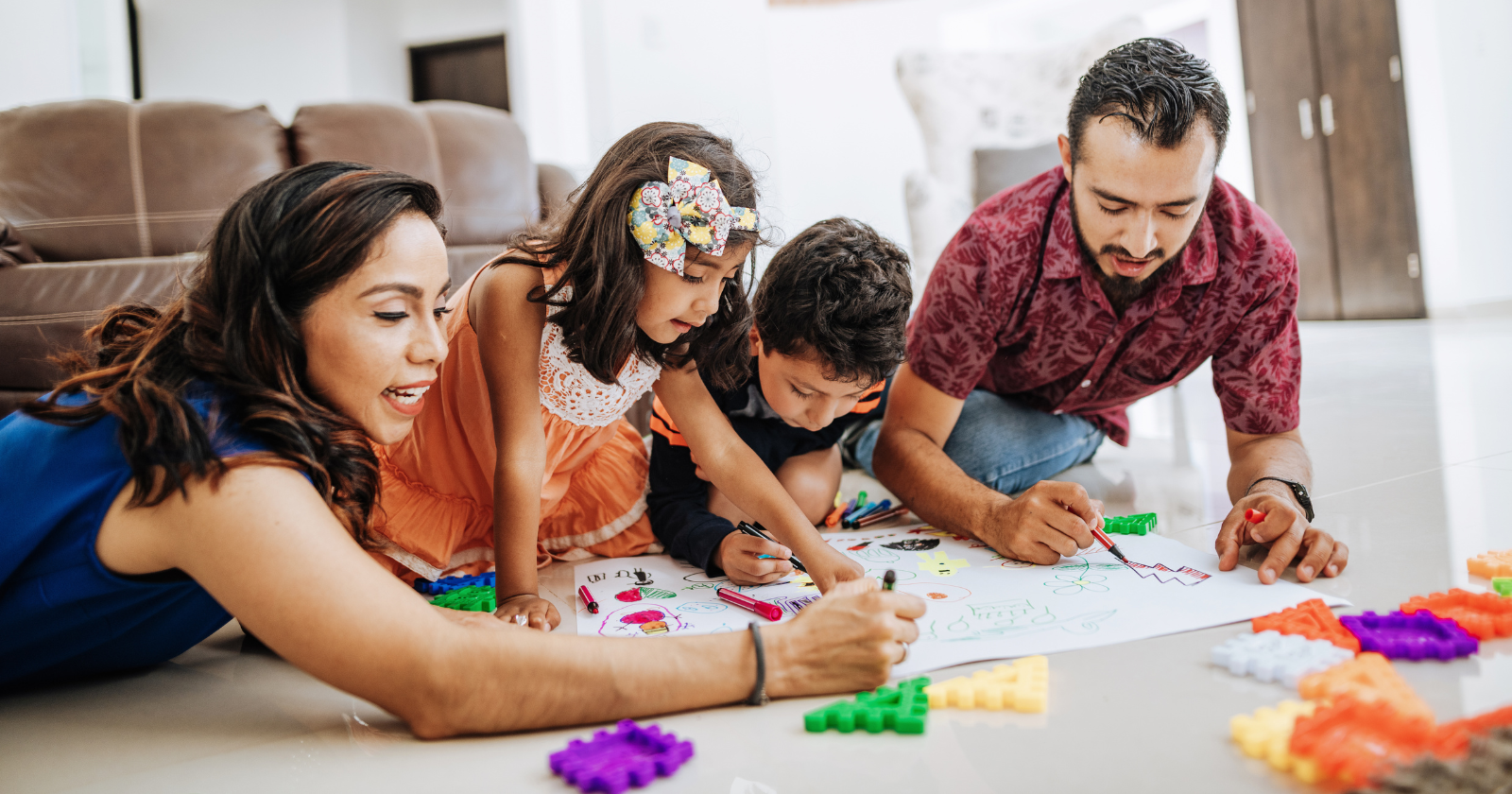Let’s be real for a second: parenting is a wild mix of joy, chaos, and constant learning.
Nobody hands you a guidebook (and if they did, I’d bet it would be outdated by the time you finished chapter one).
Over the years, through tears and laughter, through late-night feedings and “just one more story” pleas, I’ve discovered a few truths that I wish someone had whispered in my ear sooner.
Some are comforting, some are uncomfortable—but all of them are real.
Here they are, the 12 truths about parenting nobody tells you until it’s too late.
1) You will never feel “ready”
I remember standing in the nursery before Ellie was born, folding tiny onesies and thinking, I’ll feel ready once everything’s organized. Spoiler alert: I didn’t.
Parenting doesn’t wait for readiness—it grows you in real time. You learn on the job, with no syllabus, no prep time, and no performance review.
You’ll stumble, you’ll course-correct, and you’ll realize readiness was never the point. Presence is.
2) Your kids don’t need a perfect parent—they need a safe one
There’s a quiet relief in knowing you don’t have to get it all right. Kids don’t remember every balanced meal or perfect bedtime routine.
They remember how safe they felt when they fell apart, and you stayed.
Dr. Dan Siegel, author of The Whole-Brain Child, puts it beautifully: “Connection is the most important gift a parent can give.”
Related Stories from The Artful Parent
- 7 things people discover about themselves after their children are grown and their career is over that they wish someone had warned them about at 40
- There comes a day when your child stops telling you things — not because something went wrong but because they found someone else to tell — and that’s the version of letting go that no one prepares a parent for
- A child will grow up and forget almost everything about their childhood except how the house felt when they walked in the door — and that feeling was never about the house
When kids feel seen and soothed, even in your imperfection, they thrive.
Let the mess show. Be the safe place, not the perfect picture.
3) You will outgrow versions of yourself you didn’t know you’d built
Parenthood dismantles your ego in the gentlest—and sometimes most brutal—ways.
You’ll find yourself unlearning old scripts. Maybe you’ll stop yelling the way your parents did, or maybe you’ll learn to actually rest when the house is a mess.
Each stage your child grows through will pull a new version of you forward, too.
You’ll realize that parenting isn’t just about raising children—it’s about re-raising yourself.
- Psychology says the people who seem impossible to manipulate all share one trait. They learned early that love shouldn’t require you to abandon your own perception of reality. - Global English Editing
- Quote of the day by James Baldwin: “Not everything that is faced can be changed, but nothing can be changed until it is faced” - Global English Editing
- The career advice I ignored at 25 cost me three years and a failed startup — here’s what I’d tell anyone stuck in their thirties right now - Global English Editing
4) Small moments matter more than big milestones
First words and first steps get all the fanfare. But the real magic? It’s in the in-between.
The giggles during tooth-brushing. The tiny hand reaching for yours. The kitchen dance parties when dinner’s running late.
Psychologist and author Dr. John Gottman once noted that “small things often” are what build emotional connection in families.
Those little moments add up to a sense of belonging that outlasts the big achievements.
Don’t underestimate the power of one more bedtime cuddle.
5) You can’t pour from an empty cup (and your kids can tell when you’re trying)
For the longest time, I believed “good moms” gave endlessly—energy, time, snacks, patience. Until I hit burnout, snapping at everyone while insisting I was “fine.”
The truth? Our kids don’t need us to be self-sacrificing martyrs. They need models of self-respect.
When you show them what rest, boundaries, and joy look like, you’re teaching emotional regulation better than any lecture could.
Take the nap. Go for the walk. Ask for help. That is good parenting.
6) Sibling dynamics will surprise you (and humble you)

Before Milo was born, I imagined perfect sibling harmony—hand-holding, giggling, maybe sharing a snack under a blanket fort.
The reality? Let’s just say there’s more shouting and fewer snack-sharing moments.
Siblings teach patience, conflict resolution, and empathy—but mostly through friction. It’s their safe lab for learning emotional boundaries.
And yes, some days, it’s loud and exhausting. But one night, you’ll find them asleep in the same bed, arms tangled, and realize: this, too, is love.
7) Your home will never be spotless—and that’s okay
I used to chase clean surfaces like they were a sign of good parenting. But the truth is, mess is the backdrop of family life.
If you’re constantly fighting the chaos, you miss the living that happens in it.
Now, I aim for “functional” over “flawless.” A home that smells like soup and laughter beats one that looks like a catalog any day.
There’s a saying I love: “Good moms have sticky floors and happy kids.” Turns out, it’s truer than I wanted to admit.
8) Your relationship with your partner will need reimagining—again and again
Parenting doesn’t just change you—it changes your marriage.
You become teammates in a new kind of endurance sport, balancing who takes night duty and who gets five minutes alone in the shower.
The secret is to stay curious about each other. Check in, laugh at the chaos, share the mental load.
Matt and I learned to stop keeping score (“I changed three diapers!” “I did bedtime!”) and start playing for the same side. Love looks different now—but deeper, too.
9) Screens are easy—but presence is powerful
I’m not here to shame anyone for using screens (believe me, I’ve passed my phone to buy five quiet minutes).
But when screens become a default, something subtle gets lost: connection.
Kids crave real engagement—eye contact, laughter, shared boredom. When we swap scrolling for storytelling, even briefly, we teach them that presence feels better than pixels.
One small ritual that helps us? “No-screens Saturdays.” Not perfect, not strict—just intentional.
10) You’ll question yourself—a lot
Am I doing enough? Too much? Are they happy?
Parenthood is a constant guessing game, and even the most confident parent wonders if they’re messing it all up.
But here’s the truth: doubt means you care. It means you’re reflective, responsive, and willing to grow.
The parents who worry they’re failing are often the ones doing beautifully.
Keep questioning—but don’t let the questions drown out the quiet evidence that you’re doing just fine.
11) Kids remember how you made them feel, not how much you achieved
There’s pressure everywhere—activities, milestones, comparisons. But one day your child won’t remember whether you baked sourdough or packed organic lunches.
They’ll remember the warmth in your voice, the way you listened, the softness of your hugs.
Parenting expert Janet Lansbury once said, “Your greatest parenting skill is being present.” That presence shapes who they become far more than achievement ever will.
So if you’re torn between cleaning the kitchen and sitting down to color—color. Always color.
12) Letting go is part of the job description
Here’s the hardest truth of all: every stage ends, even the hard ones you swore you’d never survive. One day you’ll realize you haven’t rocked them to sleep in months.
Or they’ll buckle their own car seat, and you’ll smile through a lump in your throat.
Parenting is one long lesson in letting go—first their hand, then their room, then their plans.
And yet, that’s the beauty of it. You’re not losing them; you’re watching them become who they’re meant to be.
Closing thoughts
Parenthood doesn’t come with guarantees or a neat moral bow. Some days, you’ll nail it. Other days, you’ll wonder how it’s only 9 a.m. and you’ve already lost your patience three times.
But through it all, remember this: your love is enough. Not perfect love, not Instagram-worthy love—just steady, real, human love.
That’s what lasts.
Breathe. Laugh. Mess up. Start again. And trust that in all your imperfection, you’re giving your kids exactly what they need: a home built on heart.



